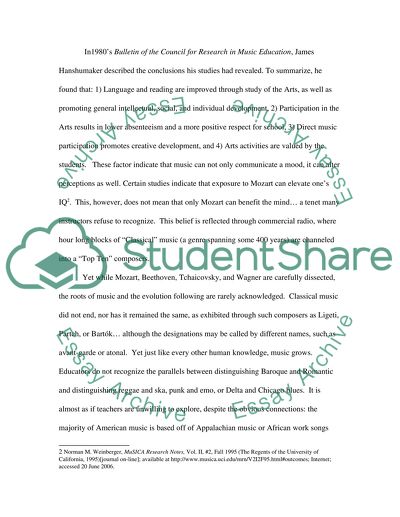Cite this document
(“Teaching Harmony: Instructing Music in Relation to the World Essay”, n.d.)
Retrieved from https://studentshare.org/music/1511949-teaching-harmony-instructing-music-in-relation-to-the-world
Retrieved from https://studentshare.org/music/1511949-teaching-harmony-instructing-music-in-relation-to-the-world
(Teaching Harmony: Instructing Music in Relation to the World Essay)
https://studentshare.org/music/1511949-teaching-harmony-instructing-music-in-relation-to-the-world.
https://studentshare.org/music/1511949-teaching-harmony-instructing-music-in-relation-to-the-world.
“Teaching Harmony: Instructing Music in Relation to the World Essay”, n.d. https://studentshare.org/music/1511949-teaching-harmony-instructing-music-in-relation-to-the-world.


